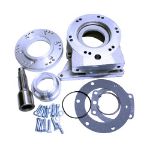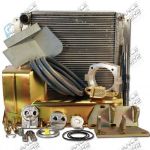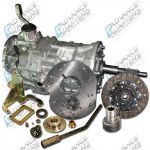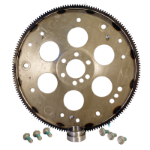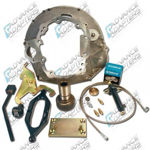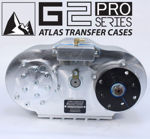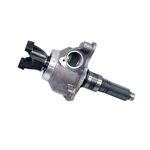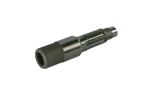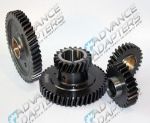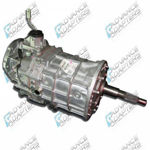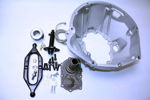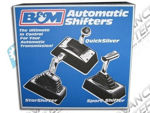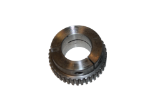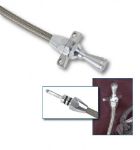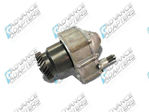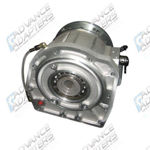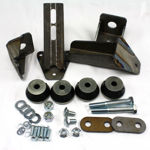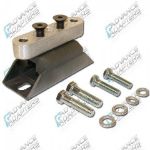*1987-05 JEEP TO GM V8 W/ AUTO.
Most engine conversions are done to add horsepower, performance or reliability along with part availability. Whatever the case may be, engine swaps will normally require cooling upgrades. Over the years, we have tested different radiators and cooling options. The information listed below describes the types of radiators that work well in converted vehicles.
We do offer some cooling accessories that work that help cool the larger engines. We offer electric fan systems, high flow water pumps, and automatic transmissions cooler lines. These additional products are listed after the radiator information in this catalog.
Aluminum Radiator Features that work well:
*1” wide core tubes *Cross Flow Design *16 Fins per inch
Inside the radiator, the engine’s heated water/coolant flows into the radiator and flows across the numerous tubes. From there the heat is transferred to the fins of the radiator. The fins are air cooled by the airflow of the fan and vehicle speed, which is the only way to dissipate the heat from the fins - thus cooling the water before reentering the engine. Aluminum radiators with the 1” wide tubes and 16 fins per inch provides excellent heat dissipation.
Our radiators use a common 3/8” NPT fitting located in the cold side of the tank. This location provides for an accurate temperature reading of the fluid as it enters the engine. Our filler neck requires a standard GM overflow system style cap (3/4” depth). We recommend a 15 lbs. to 22 lbs. cap pressure. A higher pressure cap increases the boiling point and keeps the fluid in the cooling system, not the recovery tank.
A cross flow designed radiator will allow the radiator cap to be on the low-pressure side (cold side or water outlet) of the tank. Water drops in pressure as it is cooled; allowing recovered fluid back into the radiator during normal operation. On a down flow radiator, the top tank is always the hot side and is under constant pressure. Under sustained high RPM, this can force the fluid past the filler cap, out the overflow tube, and into the recovery tank even at normal operating temperatures.
Our radiators have an aluminum angle for the mounting flange. This angle is TIG welded to the tanks. The aluminum angle has no mounting bolt holes. The customer determines the mounting pattern and location. This allows height adjustment for the radiator to center up to the water pump with the new engine location. This will also assist a desired height location if a body lift is to be installed.
Most radiators can be ordered with or without a transmission cooler. The radiator, if equipped for an automatic, will have two 1/4” NPT fittings welded into the tank. A benefit of the transmission cooler in the radiator is the heat exchange between the radiator and the tranny cooler. The radiator brings the transmission fluid up to a safe and constant operating temperature.


